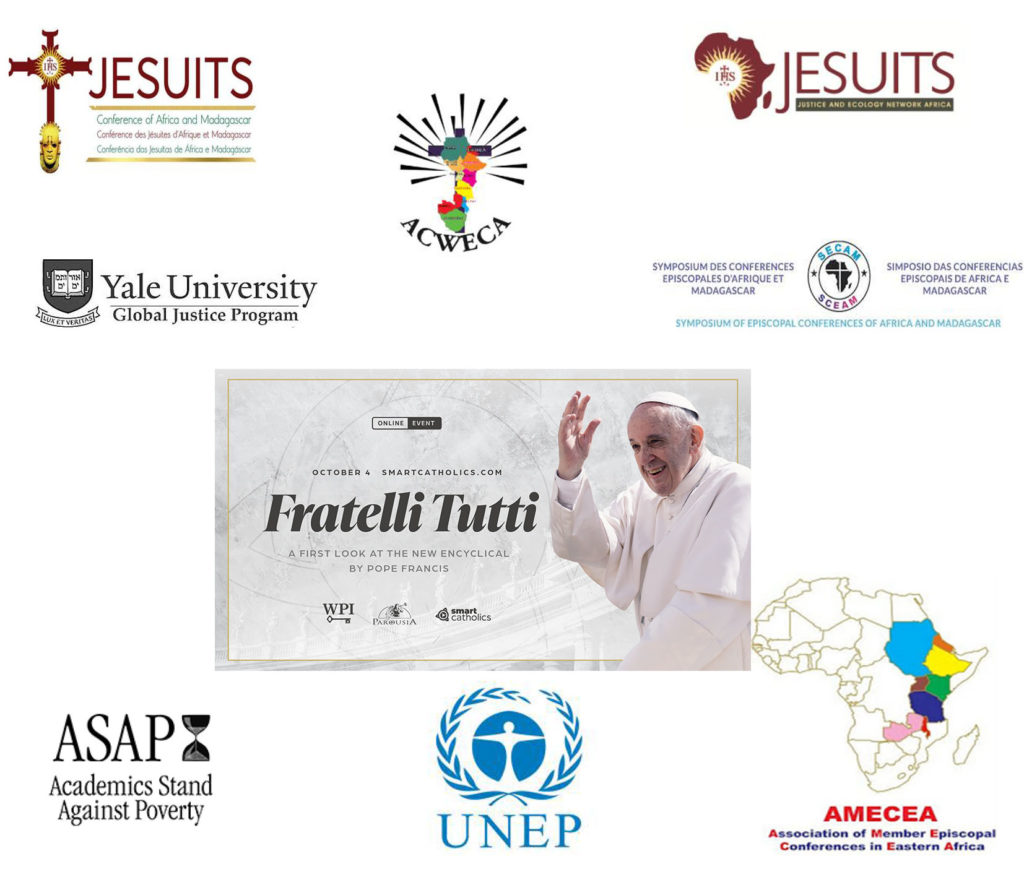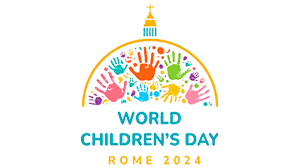SECAM: Humanity Needs “New Economic Model,” Religious Panelists on “Fratelli Tutti”

Africa Task Force on Fratelli Tuttui
Sr. Jecinter Antoinette Okoth, FSSA
Nearly a week after Pope Francis released the encyclical letter Fratelli Tutti, the Catholic Church in Africa in collaboration with various partner organizations have analyzed it and echo Pope’s message on the need to have “new economic model” that is “incisive and sustainable.”
At a webinar conference themed “What is Pope Francis Saying about the Global Economy, Politics, Peace and Security and the Global South,” organizers of the virtual session stated in a statement sent to AMECEA Online that, “We need a new economic model, not because Pope Francis is asking for one (but) because we have no choice except to develop a model that promotes life both now and in the future.”
They explained further that “in the mind of Pope Francis, crisis is an opportunity for us to build back better and ensure no one is left behind.
In his key note address, the Deputy Secretary of the Vatican Dicastery for Promoting Integral Human Development (DPIHD), Fr. Augusto Zampini Davies noted that in the current world “We have created culture of domination, extraction and throw away,” yet the Pope proposes that a better world calls for a culture of “love, service, care and value creation.”
In the Pope’s Encyclical which is addressing various global justice issues including the current situation of the global economy, developing countries’ emerging debt crisis, global health, peace and security, the Vatican Official disclosed that the Pontiff sees a dark and closed world, where nationalism is rising up and religious fundamentalism is also rising.
He elaborates that since “Social injustices and ecological injustices go hand in hand” the injustices need to be addressed together without focusing on one and leaving the other.
Fr. Zampini who is also the leader of the Vatican Covid-19 Commission said humanity needs to look at health as a public service but not an individual need.
He said, “Heath is better looked at as a public service that requires investment. We shouldn’t look at it in terms of an individual need. Covid-19 has taught us that health is an issue of public concern because if my neighbor has it, I may end up having it as well.”
The panelists who focused on “Preparing the future of a more just Post- Covid world” were drawn from various fields including academia, civil society groups, political field and Church leaders
In the statement released Tuesday, October 13, “Preparing the future means to acknowledge that things look grim, but since nothing is set in stone, it’s worth looking for economic and societal models that will help humanity out of the ongoing crisis — not by going back to a world of inequalities led by an economy that kills, but by creating a fairer world.”
On his part, the United Nations (UN) Coordinator in Kenya Mr. Siddharth Chatterjee in his opening address said that the Pope’s Encyclical is “an opportunity for us to pause and to rethink.”
“For our development, new markets have to be formed, new collaboration has to be formed and a new compact that overcome barriers of race, religion and attitudes,” he said adding that “now more than ever before, we need the leadership of the Catholic Church to advance the spirit of humanity and to advance the spirit of compassion.”
Other panellists included, Dr. Teresia Wachira, who focused on peace and security, Fr. Terwase Henry Akaabiam the Secretary General of the Symposium of Episcopal Conferences of Africa and Madagascar (SECAM), who talked about religion and interreligious dialogue, Fr. Agbonkhianmeghe Orobator the President of the Jesuit Conference of Major Superiors of Africa and Madagascar (JESAM), whose focus was in politics and Ms. Noluthando Honono, a student activist.
The Tuesday webinar was organized by the Africa Task Force for the Vatican Covid-19 Commission that comprise of SECAM, The Association of Member Episcopal Conferences of East Africa (AMECEA), The Association of Consecrated Women of Eastern and Central Africa (ACWECA), United Nations Environment Programme (UNEP), Academics Stand Against Poverty (ASAP), Yale University Global Justice Program and The Jesuits Justice and Ecology Network Africa (JENA)
The Taskforce is working in collaboration with the Covid Commission whose mandate is to reflect, analyse and propose relevant and creative approaches to “prepare the future” through four interconnected task forces: ecology, economics, health and security.


